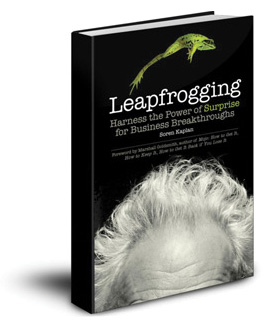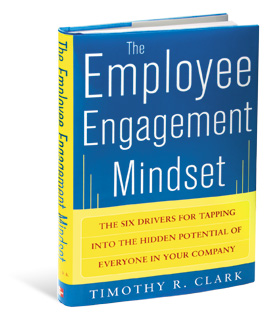
Books: Skills Trump Passion
Georgetown University Assistant Professor Cal Newport offers four new rules that challenge common career-development assumptions.
So Good They Can’t Ignore You: Why Skills Trump Passion in the Quest for Work You Love
By Cal Newport; Business Plus, 253 pages, $25.99
In an interesting challenge to longstanding career advice, Georgetown University Assistant Professor Cal Newport argues that “working right trumps finding the right work,” with the common follow-your-passion mindset being not only unhelpful but a “foundation for a career riddled with confusion and angst.”
Instead, in So Good They Can’t Ignore You: Why Skills Trump Passion in the Quest for Work You Love, Newport advocates for what he calls a data-defendable approach: “First build career capital by mastering rare and valuable skills, and then cash in this capital for the type of traits that define compelling careers,” such as mission, flexibility, and creativity. “Get good, and the passion will follow,” not the other way around, he says.
This can be an uncomfortable read within the nonprofit community, where passion—still weighed favorably in job interviews—runs high.
But Newport makes a decent case for his “craftsman mindset.” Many people love activities that either don’t match a certain career path or have little chance of shifting from avocation to vocation. What most workers really desire, he says, are key characteristics in their job—experience, autonomy, competence, and relatedness—rather than a specific type of work.
With a U.S. job satisfaction rate of only 45 percent, according to the 2010 Conference Board survey, Newport’s research and conclusions provide a good excuse to revisit career-development assumptions.

Leapfrogging: Harness the Power of Surprise for Business Breakthroughs
By Soren Kaplan; Business Plus, 253 pages, $25
Using examples such as the radical reformulation of Gatorade and the online restaurant reservation provider OpenTable, consultant Soren Kaplan outlines an upbeat, doable business framework called LEAPS (listen, explore, act, persist, seize) that leverages our brains’ propensity “to appreciate positive surprise” and enjoy “remarkable newness in ways that add value to our lives and challenge our assumptions about what we thought possible.”
Especially strong is the “Explore: Go Outside to Stretch the Inside” chapter, where he pushes readers to create, execute, and aggressively mine any new experience or conversation in order to “explore new things that move us from broad knowledge to targeted new insights.”
A good guide to shifting cynical mindsets and developing “wow.”

The Employee Engagement Mindset: The Six Drivers for Tapping into the Hidden Potential of Everyone in Your Company
By Timothy R. Clark; McGraw Hill, 238 pages, $25
If you’re seeking insights on authentic engagement of staff, you’ll find research, recommendations, and—unusually—relief in the results shared by strategy consultant Timothy Clark. After a five-year study of 35 organizations in 13 industries, he answers the “who-owns-employee-engagement” question by transferring primary responsibility from employer to employee. He aims to do so with self-assessment quizzes and instructions on “connecting, shaping, learning, stretching, achieving, and contributing.” Organizations aren’t off the hook, though. With studies showing that the average employee’s skills become obsolete within 11 months, employers must help workers develop “personal learning paths,” reset motivators, and more. Kudos for the “Tips for Leaders” sidebars.






Comments